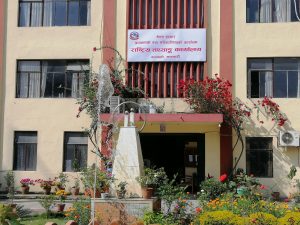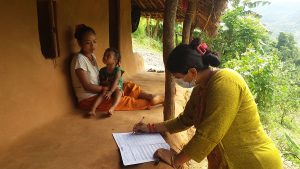 There have been major political changes in Nepal in the past centuries, the last one being in 2015 when Nepal adopted a new constitution and laid out a new state of structure with federalism. However, a core fundamental factor seems unchanged despite such major changes in all spheres of life; that is the culture of political revenge.
There have been major political changes in Nepal in the past centuries, the last one being in 2015 when Nepal adopted a new constitution and laid out a new state of structure with federalism. However, a core fundamental factor seems unchanged despite such major changes in all spheres of life; that is the culture of political revenge.
Nepal’s history is all splattered with plenty of examples of political revenge plotted and executed by political players, in the royal palaces or in other bastions of state powers.
After Nepal’s unification by Prithvi Narayan Shah, there was a clear power tussle between the royal family members. On such occasions, the palace officials took sides to serve their purposes, resulting in conspiracies to overcome each other, often at times resulting in bloodbaths.
The rise of Jang Bahadur Kunwar and a conspiracy to kill him later were both results of the culture of political revenge. Such a culture remained in the palaces until June 1, 2001, when the whole family of a reigning king was wiped out. Regicide, familicide, and suicide all occurred in the first week of the ill-fated June. This could partly be blamed to the culture of revenge simmering within the royal family.
Not only the royal family but Nepal’s political sphere has always witnessed some forms of political vengeance. Political leaders who represent Nepali people’s voices have many times forgotten their main role and dwelled on dirty games of revenging against certain other political players for what the person had done against the will of the former.
Such political vengeance is counter-productive in the long run for the person, the political party the person belongs to, and the community and country at large, even though it might give the perpetrator a peace of mind for a certain duration.
The recent internal conflict within the ruling party amidst the coronavirus pandemic is sadly likely to be heading towards a political play of the culture of revenge.
While internal conflicts within a living organisation are but its inherent nature and that such conflicts will help it come out clearer, stronger and better in terms of ideology, organisation, and management, such conflicts manifested at the time when the country and the whole world is facing a pandemic killing hundreds of thousands of people and wreaking havoc to the economies and ways of lives of the people are nothing but ill-timed.
 While the current government could have its inherent flaws that need corrections, this is the time to join hands with the government to help it fight against the deadly virus. Not only the members of the own party but people of all political orientations and ideologies and people following all walks of lives and professions should join hands with the government for a collective war against the pandemic. It is not a time to seek revenge.
While the current government could have its inherent flaws that need corrections, this is the time to join hands with the government to help it fight against the deadly virus. Not only the members of the own party but people of all political orientations and ideologies and people following all walks of lives and professions should join hands with the government for a collective war against the pandemic. It is not a time to seek revenge.
So much so, the youth groups have voluntarily sprung into protests against the government demanding stronger action against the coronavirus and protection of the peoples’ lives. While the demands seem reasonable, the aggression and the method used to display such is nothing but an act that demoralises the state authority.
The youth engaged in Enough Is Enough campaign should have used their energy and resources to create extensive community awareness using various methods and tools to keep physical distance and apply the practical safety principles. The campaigners should have gone to the bordering districts of Nepal and used their energy to make the quarantine facilities better, spread information on the pandemic, help locals understand the situation instead of displaying placards and getting undue media attention in the Kathmandu valley. Instead of focusing on preventive issues, these campaigners are engaged in curative issues, which does not quite fit the scene.
Unfortunately, this young group also followed the same culture of revolting and revenging against the government with a list of practical demands.
We have come this far together and we have to move ahead by beating this catastrophe befallen on us. In doing this, we need to work together, harder and more effectively and efficiently. Let us begin a cooperative and supportive culture.
Rakhal is a PhD student at the Department of Anthropology, Tribhuvan University, Kathmandu.
























